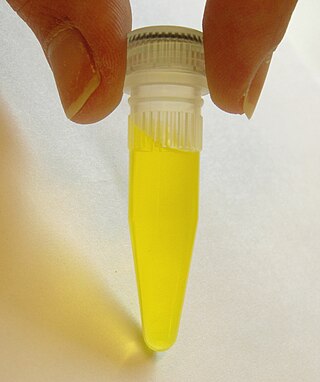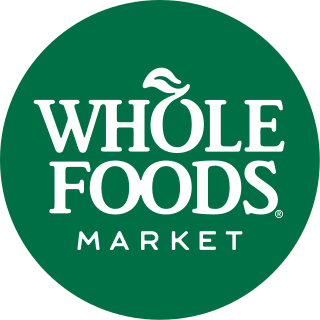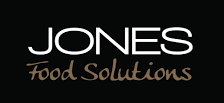This article needs additional citations for verification .(August 2017) |
SALSA (Safe and Local Supplier Approval) is a British food standard.
This article needs additional citations for verification .(August 2017) |
SALSA (Safe and Local Supplier Approval) is a British food standard.
SALSA was set up in 2007 [1] by the British Hospitality Association, British Retail Consortium and Food and Drink Federation.
The organization regulating SALSA is headquartered in Oxfordshire.
The United States Food and Drug Administration is a federal agency of the Department of Health and Human Services. The FDA is responsible for protecting and promoting public health through the control and supervision of food safety, tobacco products, caffeine products, dietary supplements, prescription and over-the-counter pharmaceutical drugs (medications), vaccines, biopharmaceuticals, blood transfusions, medical devices, electromagnetic radiation emitting devices (ERED), cosmetics, animal foods & feed and veterinary products.

Food additives are substances added to food to preserve flavor or enhance taste, appearance, or other sensory qualities. Some additives have been used for centuries as part of an effort to preserve food, for example vinegar (pickling), salt (salting), smoke (smoking), sugar (crystallization), etc. This allows for longer-lasting foods such as bacon, sweets or wines. With the advent of ultra-processed foods in the second half of the twentieth century, many additives have been introduced, of both natural and artificial origin. Food additives also include substances that may be introduced to food indirectly in the manufacturing process, through packaging, or during storage or transport.

E numbers, short for Europe numbers, are codes for substances used as food additives, including those found naturally in many foods, such as vitamin C, for use within the European Union (EU) and European Free Trade Association (EFTA). Commonly found on food labels, their safety assessment and approval are the responsibility of the European Food Safety Authority (EFSA). The fact that an additive has an E number implies that its use was at one time permitted in products for sale in the European Single Market; some of these additives are no longer allowed today.

In cooking, a sauce is a liquid, cream, or semi-solid food, served on or used in preparing other foods. Most sauces are not normally consumed by themselves; they add flavor, texture, and visual appeal to a dish. Sauce is a French word probably from the post-classical Latin salsa, derived from the classical salsus 'salted'. Possibly the oldest recorded European sauce is garum, the fish sauce used by the Ancient Romans, while doubanjiang, the Chinese soy bean paste is mentioned in Rites of Zhou 20.
Salsa most often refers to:

Salsa encompasses a variety of sauces used as condiments for tacos and other Mexican and Mexican-American foods, and as dips for tortilla chips. They may be raw or cooked, and are generally served at room temperature.
Ground beef, minced beef or beef mince - often just generically referred to as mince or mincemeat, is beef that has been finely chopped with a knife, meat grinder, mincer or mincing machine. It is used in many recipes including hamburgers, bolognese sauce, meatloaf, meatballs, kofta, burritos, and mince pies.

Whole Foods Market, Inc., a subsidiary of Amazon, is an American multinational supermarket chain headquartered in Austin, Texas, which sells products free from hydrogenated fats and artificial colors, flavors, and preservatives. A USDA Certified Organic grocer in the United States, the chain is popularly known for its organic selections. As of March 4, 2019, Whole Foods has more than 500 stores in North America and seven in the United Kingdom.

Generally recognized as safe (GRAS) is a United States Food and Drug Administration (FDA) designation that a chemical or substance added to food is considered safe by experts under the conditions of its intended use. An ingredient with a GRAS designation is exempted from the usual Federal Food, Drug, and Cosmetic Act (FFDCA) food additive tolerance requirements. The concept of food additives being "generally recognized as safe" was first described in the Food Additives Amendment of 1958, and all additives introduced after this time had to be evaluated by new standards. The FDA list of GRAS notices is updated approximately each month, as of 2021.
Heating oil is any petroleum product or other oil used for heating; it is a fuel oil. Most commonly, it refers to low viscosity grades of fuel oil used for furnaces or boilers use for home heating and in other buildings. Home heating oil is often abbreviated as HHO.

The United States Federal Food, Drug, and Cosmetic Act is a set of laws passed by the United States Congress in 1938 giving authority to the U.S. Food and Drug Administration (FDA) to oversee the safety of food, drugs, medical devices, and cosmetics. The FDA's principal representative with members of congress during its drafting was Charles W. Crawford. A principal author of this law was Royal S. Copeland, a three-term U.S. senator from New York. In 1968, the Electronic Product Radiation Control provisions were added to the FD&C. Also in that year the FDA formed the Drug Efficacy Study Implementation (DESI) to incorporate into FD&C regulations the recommendations from a National Academy of Sciences investigation of effectiveness of previously marketed drugs. The act has been amended many times, most recently to add requirements about bioterrorism preparations.

The water industry provides drinking water and wastewater services to residential, commercial, and industrial sectors of the economy. Typically public utilities operate water supply networks. The water industry does not include manufacturers and suppliers of bottled water, which is part of the beverage production and belongs to the food sector.

The foodservice or catering industry includes the businesses, institutions, and companies which prepare meals outside the home. It includes restaurants, grocery stores, school and hospital cafeterias, catering operations, and many other formats.
The artificial sweetener aspartame has been the subject of several controversies since its initial approval by the U.S. Food and Drug Administration (FDA) in 1974. The FDA approval of aspartame was highly contested, beginning with suspicions of its involvement in brain cancer, alleging that the quality of the initial research supporting its safety was inadequate and flawed, and that conflicts of interest marred the 1981 approval of aspartame, previously evaluated by two FDA panels that concluded to keep the approval on hold before further investigation. In 1987, the U.S. Government Accountability Office concluded that the food additive approval process had been followed properly for aspartame. The irregularities fueled a conspiracy theory, which the "Nancy Markle" email hoax circulated, along with claims—counter to the weight of medical evidence—that numerous health conditions are caused by the consumption of aspartame in normal doses.

Food safety is used as a scientific method/discipline describing handling, preparation, and storage of food in ways that prevent foodborne illness. The occurrence of two or more cases of a similar illness resulting from the ingestion of a common food is known as a food-borne disease outbreak. This includes a number of routines that should be followed to avoid potential health hazards. In this way, food safety often overlaps with food defense to prevent harm to consumers. The tracks within this line of thought are safety between industry and the market and then between the market and the consumer. In considering industry-to-market practices, food safety considerations include the origins of food including the practices relating to food labeling, food hygiene, food additives and pesticide residues, as well as policies on biotechnology and food and guidelines for the management of governmental import and export inspection and certification systems for foods. In considering market-to-consumer practices, the usual thought is that food ought to be safe in the market and the concern is safe delivery and preparation of the food for the consumer. Food safety, nutrition and food security are closely related. Unhealthy food creates a cycle of disease and malnutrition that affects infants and adults as well.

Pace Foods is a producer of a variety of canned salsas located in Paris, Texas. The company was founded in 1947 by David Pace when he developed a recipe for a salsa he called "Picante sauce", which was "made with the freshest ingredients, harvested and hand-selected in peak season to achieve the best flavor and quality". It is now sold as "the Original Picante Sauce".

L & F Jones Holdings Ltd is a company based in Westfield, Somerset, England, that includes a chain of convenience shops, a wholesale food business, and a Best Western PLUS hotel. The retail chain consists of twelve shops in Somerset, Wiltshire, Dorset, South Gloucestershire, and Bristol.

Royal warrants of appointment have been issued since the 15th century to those who supply goods or services to a royal court or certain royal personages. The warrant enables the supplier to advertise the fact that they supply to the royal family, thereby lending prestige to the brand or supplier. In the United Kingdom, grants are usually made by the monarch, spouse, and heir apparent to companies or tradespeople who supply goods and services to individuals in the family.
The Institute of Food Science & Technology (IFST) is an independent qualifying body for food professionals based in the UK that is concerned with all aspects of food science and technology.
eCOGRA is a London-based testing agency and standards organisation in the realm of online gambling. The company was established in 2003 in the United Kingdom at the behest of the online gaming industry as the first industry self-regulation system. eCOGRA is a testing laboratory, inspection body, and certification body, specializing in the certification of online gaming software and the audit of Information Security Management Systems.